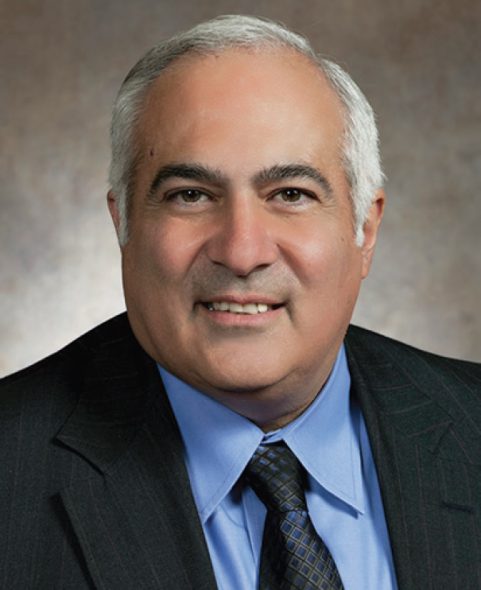GOP’s “Riot” Bill Is Unconstitutional
Aimed at college students, infringes freedom of speech, assembly
Republicans in the Wisconsin legislature have drafted another unconstitutional bill that limits free speech.
Not content to try to limit the right of students to express disagreement during a speech on university property, now Republicans are trying to pass another bill that infringes on people’s right to speak and assemble.
This one would make it a felony to “riot,” and you could face three and a half years in jail for it and be fined $10,000.
The bill defines “riot” in a ridiculously and unconstitutionally broad way.
On the ridiculous side, the bill states that a minimum of three persons assembled together would constitute a group that is capable of engaging in a riot. That seems like an awfully small number.
Then, to qualify as a riot, one of two things must happen, the bill says.
First, there must be “an act of violence by one or more persons” of the group. Note that all three persons (or even all 300 persons if the group was that big) could be found guilty even if just one of them engages in the violence. Plus, the act of violence doesn’t have to do actual damage to people or property. It just has to constitute “a clear and present danger of . . . damage or injury to the property of any other person or to another person.”
Second, under the bill, even if there is no act of violence at all, you can still be convicted of engaging in a riot so long as a member of the group issues a threat of violence. The bill states that it’s a riot when there is “a threat of the commission of an act of violence by one or more persons that are part of an assembly of at least three persons having, individually or collectively, the ability of immediate execution of the threat, if the performance of the threatened act of violence would constitute a clear and present danger of, or would result in, damage or injury to the property of any other person to another person.”
But what constitutes a “threat”? How explicit does it need to be? Note that the U.S. Supreme Court has ruled on several occasions that vague threats of violence are protected under the First Amendment. As it pertains to threats, this piece of legislation is unconstitutional. In the landmark U.S. Supreme Court case Brandenburg v. Ohio in 1969, the court ruled that speech can be prohibited only if it is “directed at inciting or producing imminent lawless action” and it is “likely to incite or produce such action.” Nothing in this Wisconsin bill stipulates that the threat must be “imminent” or “likely to incite or produce” an act of violence. All it says is that at least one person in the group has “the ability” to immediately execute the threat. That’s quite different.
Besides being unconstitutional, this bill is unnecessary. Violent acts are already crimes. Damage to property is already a crime. Direct, imminent threats to specific persons are already crimes. Failure to disperse is already a crime. Disorderly conduct is already a crime. Conspiracy is already a crime.
We don’t need more criminal statutes that cover essentially the same ground.
Nor do we need more criminal statutes that are aimed at people who are protesting police violence. Let’s be clear here: Most riots over the last six decades in America have occurred in response to police brutality. This bill appears to be aimed at those protesters. The authors of the bill, Representatives John Spiros and Senator Van Wanggaard, in a letter to their colleagues, said the bill was in response to “an increase in the number of high-profile riots across the country.”
Again, there are laws against violence, looting, and arson. We don’t need laws that penalize assembly and speech.
And if you want to reduce riots, reduce police brutality.
Matthew Rothschild is executive director of the Wisconsin Democracy Campaign.
Op-Ed
-
Wisconsin Candidates Decry Money in Politics, Plan to Raise Tons of It
 Dec 15th, 2025 by Ruth Conniff
Dec 15th, 2025 by Ruth Conniff
-
Trump Left Contraceptives to Rot; Women Pay the Price
 Dec 8th, 2025 by Dr. Shefaali Sharma
Dec 8th, 2025 by Dr. Shefaali Sharma
-
Why the Common Council’s Amended Budget is Good Policy for Milwaukee
 Nov 20th, 2025 by Alds. Marina Dimitrijevic and Russell W. Stamper, II
Nov 20th, 2025 by Alds. Marina Dimitrijevic and Russell W. Stamper, II























If we increase the number of people from 3 to 10 and only include those making the threats or committing the acts which endanger others, can we have more civil meetings and demonstrations? That would be refreshing.
If three kids TP my house I am pretty sure there is a risk of damage to my property, what with all the grass getting trampled. And if one of them little bastards throws an egg I think it is high time to call out the national guard.
And since 17 year olds are grownups in this progressive state, perhaps the menace of fun will be stopped once and for all. Or at least cops will lock up white kids once in a while. Punk ass Marquette High kids can go work for temp services then, instead of taking up all that space in colleges. Or would we just imprison the taggers?
Kids will need to act alone or in pairs to TP and smash mailboxes from now on.
I had a conversation yesterday with someone inn Spiros office who promised to send me copy of proposed legislation.
A discussion on how ridiculous this bill is as well as unconstitutional I decided talking to that office person was waste of time.
If I am correct the protests in Madison would have been classifies as riots since some of legislators chose to use tunnels and
disguises as they feared for their safety. One should note the outcomes of those individuals charged for protests in the Capitol building . I believe it cost the state money as they lost lawsuit after lawsuit.
Or when our brave Gov. claimed his car was surrounded by a group and he was threatened that would be a riot. (Felony or What) Claim later proved false.
If I and three others or ten others go to offices of Spiros or Rep Sean Duffy to protest could we be charged if one of their staff said they felt threatened. Here is experience I had at Rep Duffy office in Wausau. I went in to voice my opinions and Staff member informed me if I didn’t leave she would call police. No threat of any kind was made. I sat in chair and said go ahead and call police and what will you charge me with? At that point another individual with more authority came out of another office and said I guess that is not a good idea to call police.
I asked Maggie if I should call ahead when I was going to stop by office so she could call police and have them there when I arrived. I guess that was not necessary.. What a farce.